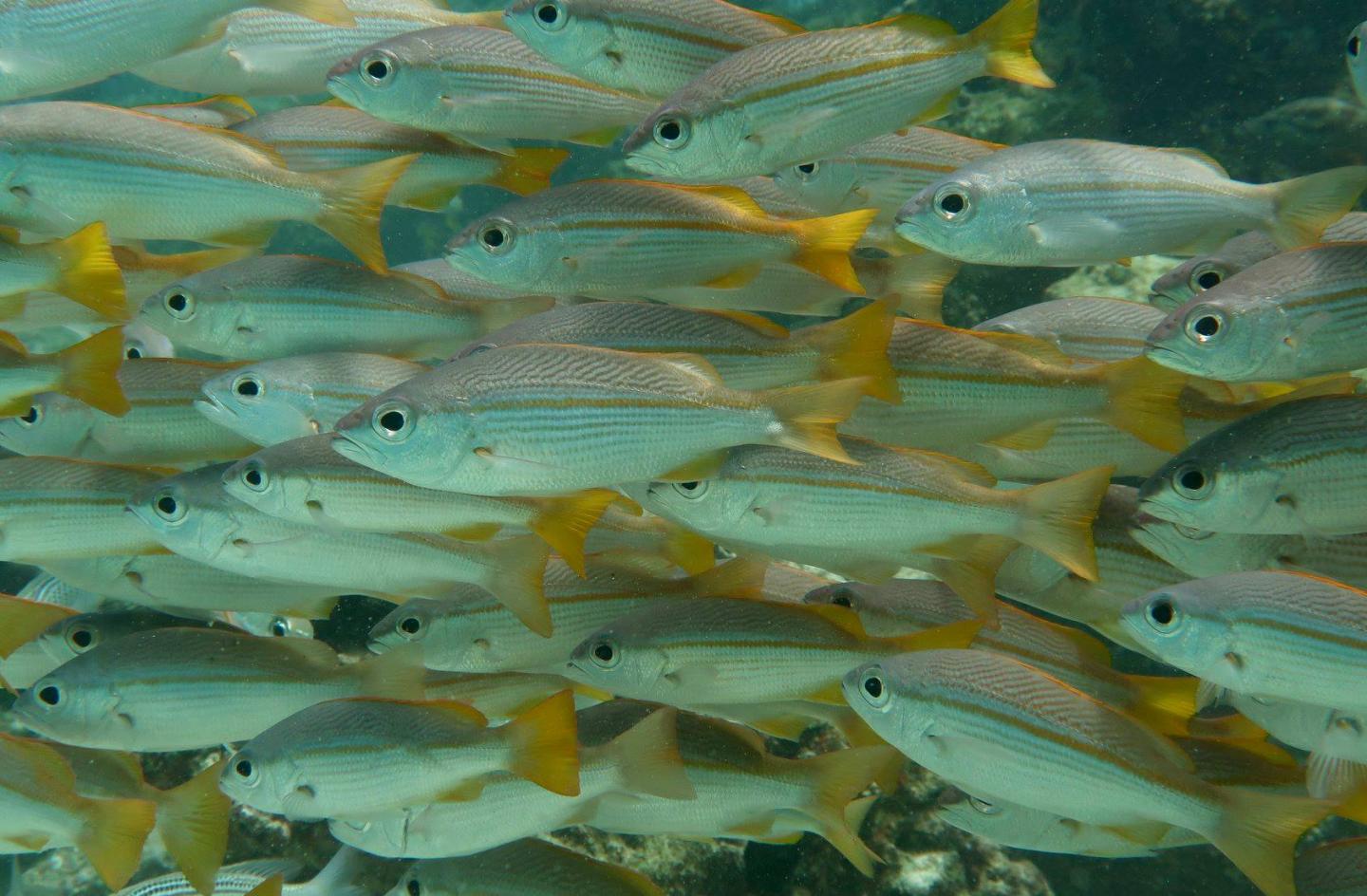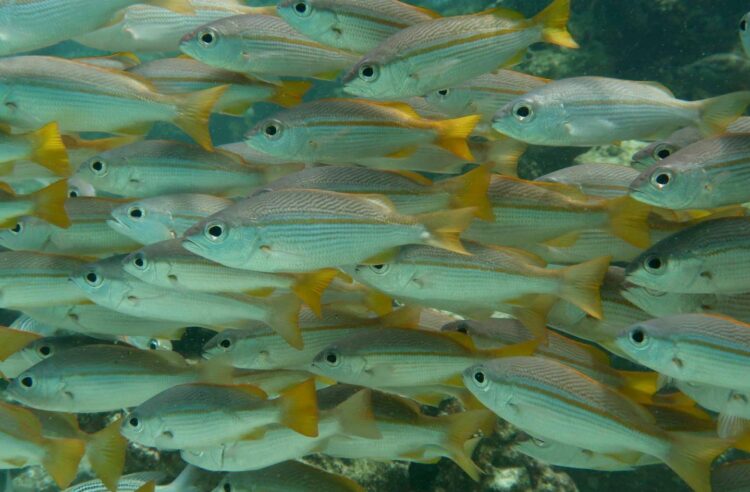
Credit: Jordan M. Casey
Fast facts
- An international team of researchers, hosted and supported by NYU Abu Dhabi, have found that small, bottom-dwelling reef fishes on the world’s hottest coral reefs in the southern Arabian Gulf are much less diverse and abundant than on nearby reefs with less extreme temperatures
- The paper, published in Nature Communications, examines ‘cryptobenthic’ fishes in the Arabian Gulf and the Sea of Oman, linking the reduced diversity and productivity of communities in the Arabian Gulf to energetic deficits that preclude the existence of many species
Abu Dhabi, UAE, July 31, 2020: As global warming continues to escalate, there are lasting implications to consider, including the changes to biological communities in vital habitats such as coral reefs. A team of researchers, led by Simon Brandl (currently at the Centre de Recherches Insulaires et Observatoire de l’Environnement, CRIOBE, France) and Jacob Johansen, an Assistant Research Professor at Hawai’i Institute of Marine Biology (and previously a research scientist at NYU Abu Dhabi’s Marine Biology Lab), recently studied cryptobenthic reef fishes (small, bottom-dwelling fish that are at the base of coral reef food webs) in the Arabian Gulf and the Sea of Oman and found that the more thermally extreme coral reef habitat in the Arabian Gulf adversely impacted the diversity and productivity of these important fishes.
In the paper, Extreme environmental conditions reduce coral reef fish biodiversity and productivity, published in the journal Nature Communications, the researchers use a variety of techniques to compare organismal traits, diversity, and productivity of cryptobenthic reef fish in the environmentally extreme Arabian Gulf with those in the Sea of Oman.
“The Arabian Gulf is the world’s hottest sea each summer with temperatures well beyond those experienced by fishes elsewhere in the tropics, while the adjacent Sea of Oman is considerably more benign. This makes this region a useful natural laboratory for understanding how climate extremes affect fish function and diversity”, said senior author Associate Professor of Biology at NYU Abu Dhabi John Burt.
Fish communities in the Arabian Gulf were found to be half as diverse and less than 25 percent as abundant as those in the Gulf of Oman, despite broad similarities in the amount of live coral. Surprisingly, this does not seem to be related to absolute temperature tolerances of cryptobenthic fishes.
“We expected to see much lower temperature tolerances in species that occur in the Sea of Oman, but not in the southern Arabian Gulf,” said Johansen. “Yet, the critical thermal tolerances of all species found in the Sea of Oman were, in theory, sufficient to survive even the maximum summer temperatures of 36°C in the southern Arabian Gulf.”
Instead, differences in prey eaten and body condition in the species present at both locations suggest that the thermal extremes of the Arabian Gulf are an energetically challenging environment for these smallest marine vertebrates. While hotter waters require more energy, a distinct, less diverse set of prey items in the Arabian Gulf may make it difficult for these small-bodied fishes to satisfy their energetic demands.
Importantly, the reduced diversity and abundance of cryptobenthic fishes greatly impairs the unique functional role of these animals. “These tiny fishes normally feed a lot of the larger, predatory animals on coral reefs by growing and dying rapidly, while constantly replenishing their populations,” explains Brandl, “But on reefs in the southern Arabian Gulf, cryptobenthic fish communities provide only a fraction of the fish flesh that they can produce in more benign environments.”
“Our findings highlight an imminent threat to cryptobenthic reef fishes and their essential role for coral reef functioning. These smallest marine ectotherms may struggle to compensate for increasing costs of growth and maintenance as they adapt to more extreme temperatures,” said Johansen. “Extreme environmental conditions, as predicted for the end of the 21st century, could, therefore, disrupt the community structure and productivity of coral reefs in the Arabian Gulf and beyond.”
###
About NYU Abu Dhabi
NYU Abu Dhabi is the first comprehensive liberal arts and science campus in the Middle East to be operated abroad by a major American research university. NYU Abu Dhabi has integrated a highly-selective liberal arts, engineering and science curriculum with a world center for advanced research and scholarship enabling its students to succeed in an increasingly interdependent world and advance cooperation and progress on humanity’s shared challenges. NYU Abu Dhabi’s high-achieving students have come from more than 115 nations and speak over 115 languages. Together, NYU’s campuses in New York, Abu Dhabi, and Shanghai form the backbone of a unique global university, giving faculty and students opportunities to experience varied learning environments and immersion in other cultures at one or more of the numerous study-abroad sites NYU maintains on six continents.
Media Contact
Adam Pockriss
[email protected]





